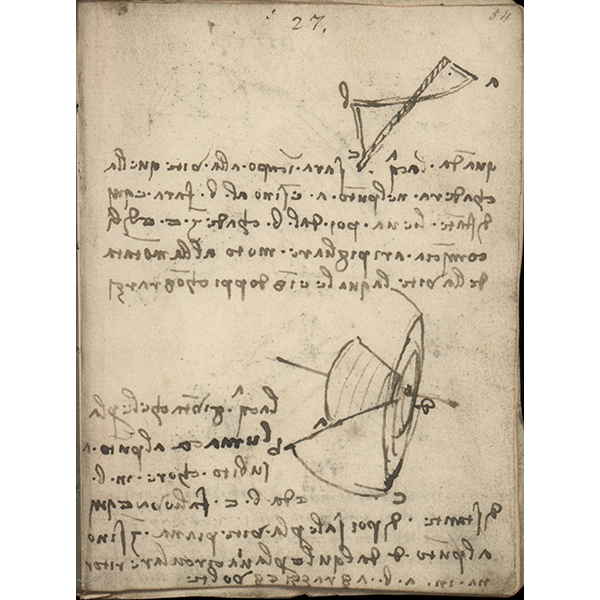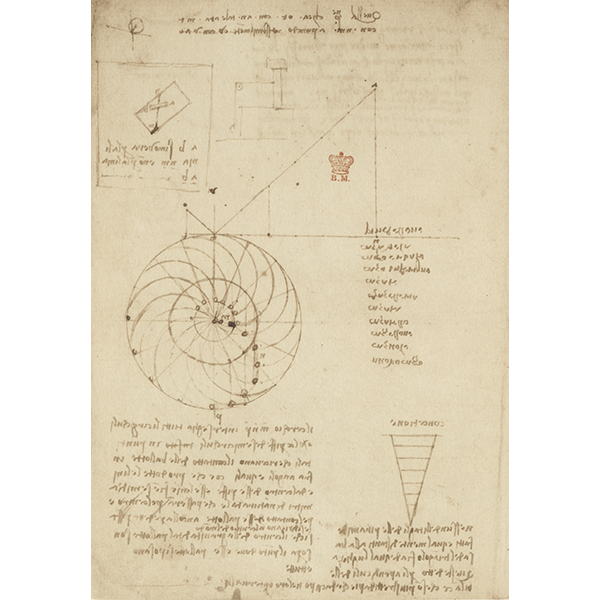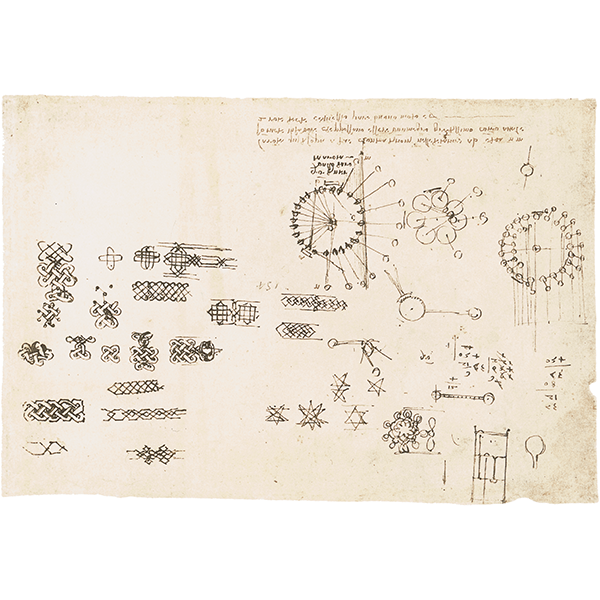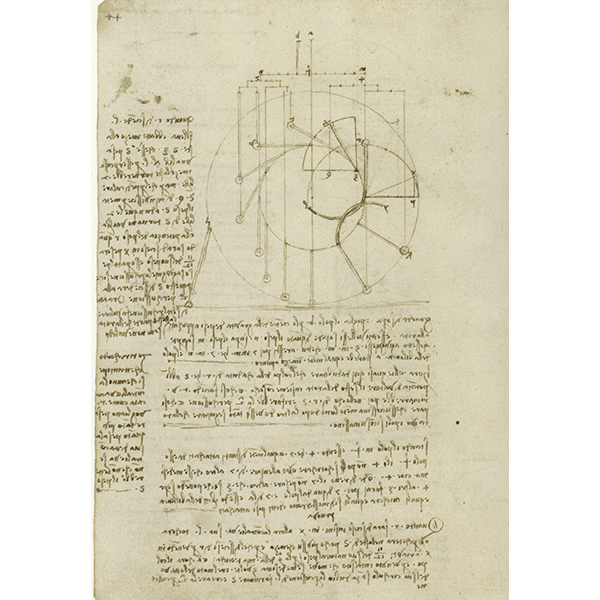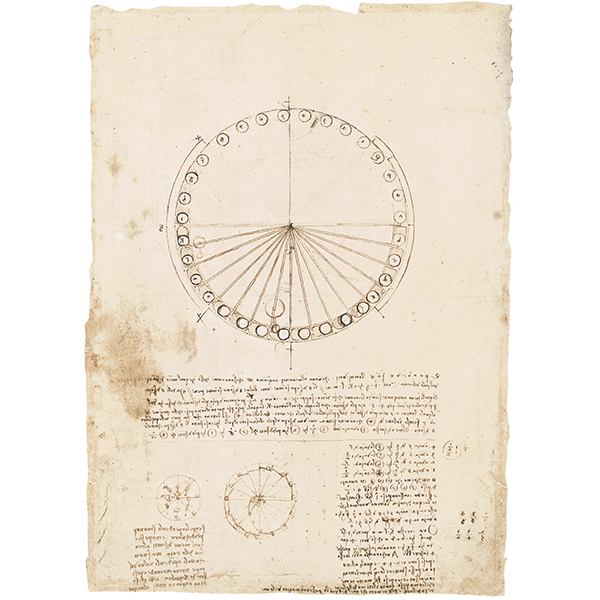Further studies on perpetual wheels
By the mid-1490s, Leonardo concluded that perpetual motion was impossible, but he continued to explore the possibility of building rotating systems capable of remaining in motion. Of particular interest are his studies on Archimedes’ screws. He designed and modified them in an attempt to harness the flow of water to create the imbalance needed to keep the screws turning. This would allow their use as motors to power operating machines.
Leonardo da Vinci
London, Victoria & Albert Museum, Codex Forster I, f. 54r
1487-90
Leonardo da Vinci
London, British Library, Codex Arundel, f. 44v
Approx. 1495
Leonardo da Vinci
Milan, Veneranda Biblioteca Ambrosiana, Codex Atlanticus, f. 760r
1497
Leonardo da Vinci
Madrid, Biblioteca Nacional de España, Codex Madrid I, f. 147v
1493-1495
Leonardo da Vinci
Milan, Veneranda Biblioteca Ambrosiana, Codex Atlanticus, f. 778v
1499-1500


